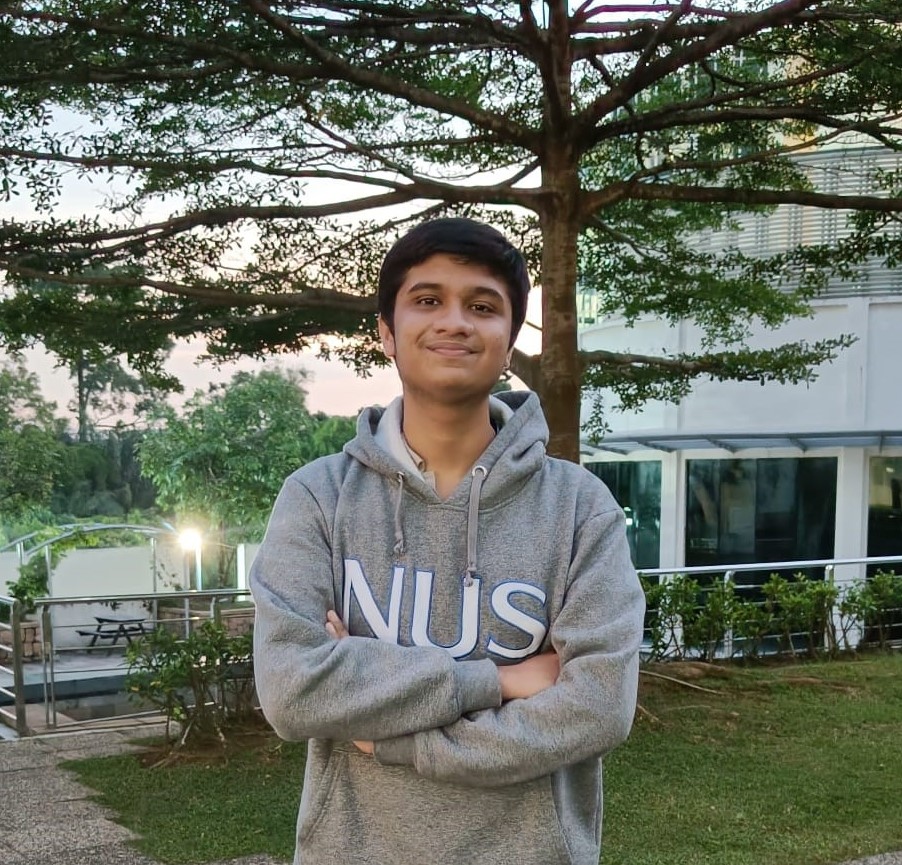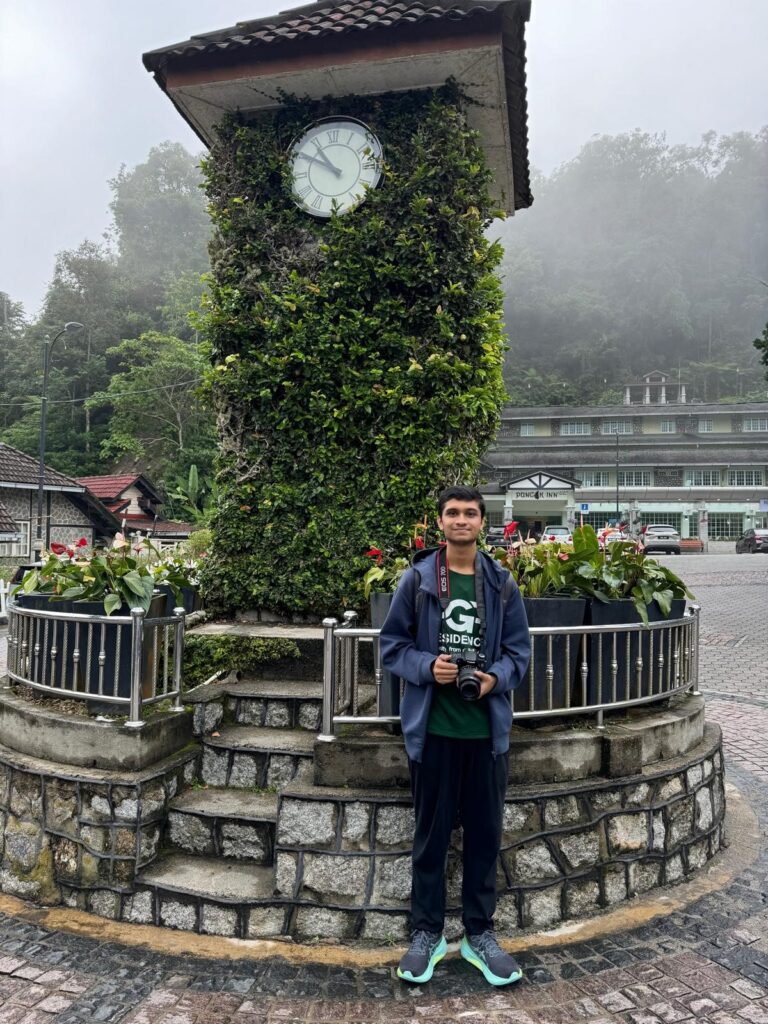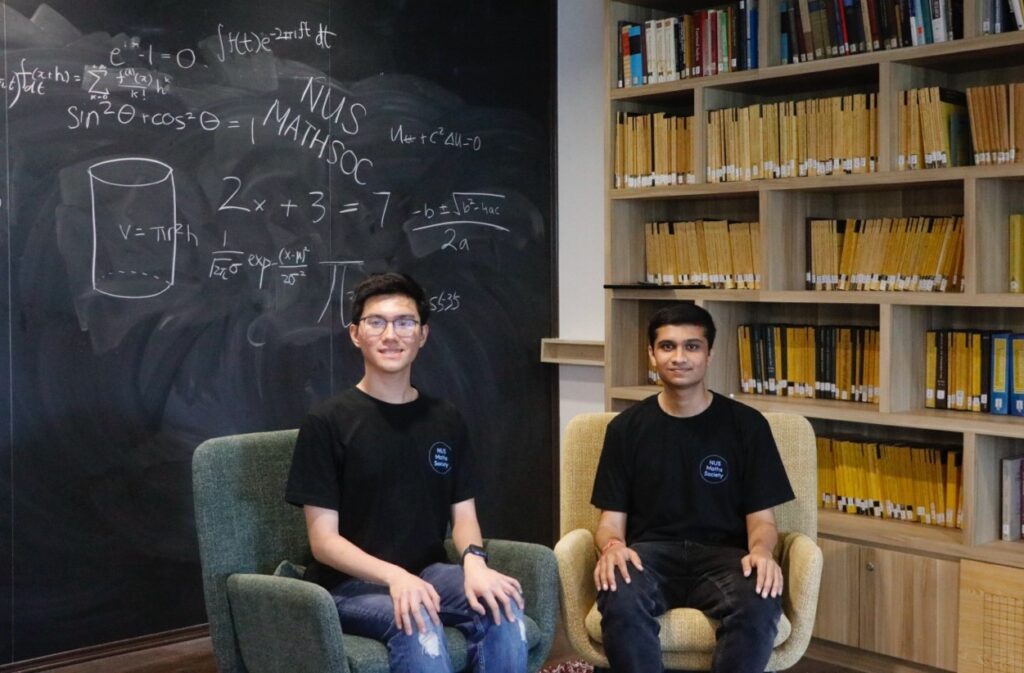
Why did you choose to pursue your undergraduate education with NUS Mathematics?
Data Science, as a confluence of maths, stats, and computer science, was something I wasn’t deeply aware of until high school. But gradually and consciously, I began to observe its profound impact in various fields. In newspapers and articles, I saw statistics influencing public opinion; in targeted advertisements, I witnessed mathematical models utilising user data; and in research papers, I discovered the pivotal role of statistical theories in analyzing scientific models. My augmented curiosity and newfound interest in mathematics and statistics led me to gather more knowledge about the field.
What ensued has been a remarkable jouney of unraveling the realms of Statistics, Mathematics, and Computer Science. This journey has not only deepened my understanding but has also solidified my passion for the subject. The Mathematics department at NUS offers a comprehensive curriculum and a vibrant academic community, which I believe is the perfect environment to further develop my skills and pursue my aspirations in mathematics.
Choosing NUS Mathematics was a natural step for me. I am eager to contribute to and learn from the amazing faculty and fellow students, as I continue my journey in this fascinating discipline.
What motivated you to do a 2nd Major/Minor? Is this because you would like to pursue a specific career pathway, discover your interests etc?
I chose to pursue a Double Degree Programme in Data Science and Analytics and Economics, complemented by a minor in Computer Science and a specialisation in Statistical Methodology. This would align with my multifaceted interests and career aspirations.
My passion for economics is intricately tied to my love for the application of mathematics and computational models. I’ve come to appreciate how these tools allow us to dissect complex economic phenomena, predict market trends, and make informed decisions. By integrating economics with data science, I aim to develop a robust understanding of both theoretical and practical aspects of economic models and their analytical development. My minor in Computer Science equips me with essential computational skills, while my specialisation in Statistics provides a solid foundation for rigorous data analysis.
This combination is not just about preparing for a specific career pathway but also about discovering and nurturing my diverse interests. It enables me to contribute effectively to the evolving landscape of data-driven decision-making and economic analysis to transform the way we understand and use data so as to solve some of the most difficult problems of the 21st century.
How did the opportunities provided by NUS enhance your personal growth and development, academic growth / learning and career aspirations?
UROPS:
I did my Undergraduate Research Opportunity Programme (UROPS) on Complex Valued Neural Networks, allowing me to fulfil my ambition of exploring the academic world and gaining hands-on experience with research methodologies. This opportunity challenged me to think critically and independently, fostering a sense of resilience and perseverance. Working under the guidance of Professor Subhroshekhar Ghosh, I learned how to navigate complex problems, articulate my ideas effectively, and collaborate with others in a scholarly environment. This experience significantly enhanced my confidence and curiosity, fueling my desire to delve deeper into mathematical research.
Internships:
I pursued several internships to gain valuable industry experience and apply the knowledge and skills I acquired in the classroom to real-world situations.
At NUS Research in Industrial Projects (RIPS) with Procter & Gamble (P&G), I collaborated on developing adaptive methods for leveraging historical data in randomized controlled trials, enhancing my understanding of Bayesian statistics.
At Jio AI Centre for Excellence, I researched algorithms for SLAM and 3D reconstruction, further refining my skills in deep learning and optimization. I went back again to work as a Data Science Intern on a customer port-out project, which exposed me to big data and unbalanced sampling techniques.
My internship at Maersk involved developing a Visual Management System (VMS), where I gained insights into the commercial operations of a large organization and the role of IT in supporting business objectives.
At Birlasoft, I designed transfer learning models for identifying manufacturing defects and employed NLP techniques for business decision-making, broadening my technical expertise.
These diverse experiences have been instrumental in shaping my career goals, providing me with a comprehensive understanding of various industries and equipping me with valuable skills and insights that I can leverage in my future career.
Please describe your most memorable experiences as a student in NUS Mathematics. Did you face any challenges along the way? If so, how did you overcome these challenges?
One of my most memorable experiences at NUS Mathematics was being an EXCO member of the NUS Mathematics Society. This role was both exciting and challenging, allowing me to get involved with the vibrant math community on campus. I especially enjoyed the welcome ceremony and bonding sessions. These events were a lot of fun and a great way to meet new friends who shared my passion for mathematics.
As part of my duties, I conducted LaTeX workshops to help students improve their academic writing and presentations. I also helped in creating Past Year solutions for mathematics courses, which involved working closely with other math students. This not only improved our technical skills but also built strong relationships. The experiences were incredibly rewarding, helping me grow personally and academically while contributing to the NUS Mathematics community.
Who were the key individuals who supported and guided you throughout your four-year journey at the university? Is there anyone in particular whom you would like to pay tribute to or express your gratitude?
Throughout my NUS journey, many professors have played a crucial role in supporting and guiding me. Their dedication to teaching and willingness to help students were invaluable. They provided not only academic instruction but also mentorship and encouragement, which significantly enhanced my learning experience. I am deeply grateful to all the professors who have inspired me and contributed to my growth, both personally and academically.
In particular, I would like to thank Prof. Prabhu from NUS SoC for his tremendous guidance. Additionally, I am deeply grateful to my family for their unwavering support.
What advice would you offer to fellow students who are keen on choosing NUS Mathematics for their undergraduate education?

If you’re considering NUS Mathematics for your undergraduate education, embrace every opportunity to get involved. Participate in events, join societies, and don’t hesitate to ask for help from professors and peers. Stay curious, work hard, and enjoy the journey. NUS offers a vibrant community and countless resources to support your growth both academically and personally. Make the most of it, and you’ll find the experience incredibly rewarding.

